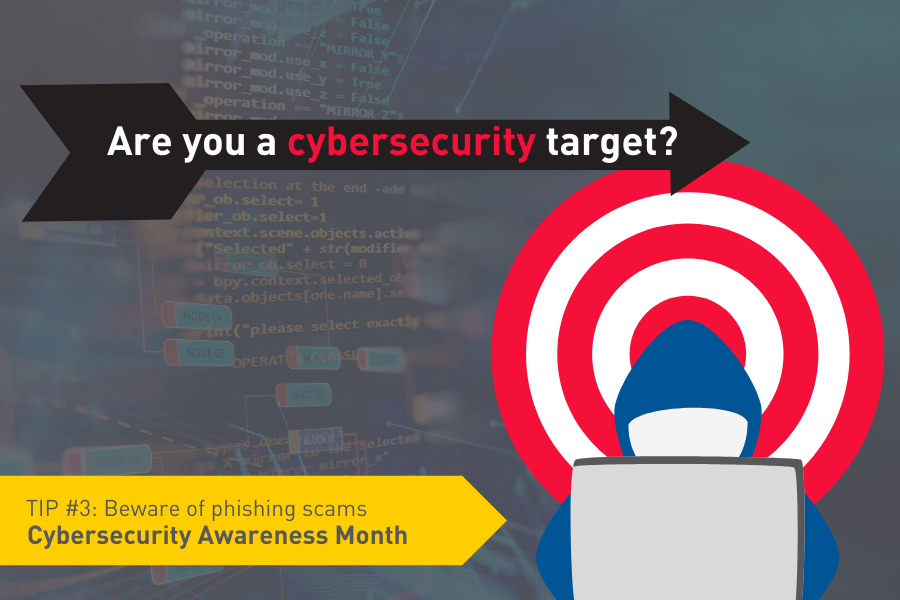
Phishing is one of the most common and dangerous types of fraud. Phishing attempts come in various forms — emails, texts, calls, and voicemails — all designed to steal your personal information. Avoid being a target: staying vigilant is your best defense against these attacks and is crucial for protecting the entire campus community.
Information Technology Services offers five essential tips to help you avoid falling prey to phishing:
- Evaluate the request: Consider the nature of the request in the email or text. Is it something you expected or is it out of the ordinary?
- Check the sender’s details: Carefully scrutinize the sender’s name and email address. Look for any inconsistencies or unusual domains.
- Look for red flags: Be wary of messages that create a sense of urgency or solicitations that seem unusual or out of the norm.
- Hover over links: Before clicking on any link, hover your cursor over it to see where it leads. If the URL looks suspicious, don’t click.
- Be cautious with access requests: If someone asks to access your computer remotely, be extremely cautious. This is a common phishing tactic.
Even if an email appears to be from someone you know or a trusted vendor, don’t let down your guard. Hackers often impersonate familiar contacts to trick you into responding. If you have any doubts about a message, reach out to the sender through a different communication channel to verify its legitimacy — never respond directly to the suspicious message.
MS Outlook offers a way to report phishing email attempts within the application. It is useful to report the message as it helps improve the effectiveness of filtering the nefarious messages to your Junk Mail folder. Otherwise, report the message to spam@uwindsor.ca.
You can also report smishing (phishing attempts via SMS text) by forwarding the messages to 7726 (which spells SPAM on most keypads). This alerts your mobile provider to investigate the message’s content. Canadian telecom companies take spam very seriously, and reporting to 7726 helps them identify new smishing tactics.
To better prepare yourself against phishing attacks, visit the Cybersecurity Awareness website and review examples of phishing messages. Don’t let yourself become a target — stay informed and stay protected.
If you think your UWin account has been compromised, report it to the IT Service Desk at 519-253-3000, ext. 4440, and change your UWin Account password immediately.
In early 2024, the University implemented mandatory cybersecurity training for all faculty, staff, post-doctoral fellows, adjunct professors, sessional instructors, and student employees. If you have not completed the mandatory training, do so by Oct. 31.
Led by IT Services, Cybersecurity Awareness Month efforts highlight cybersecurity issues relevant to the UWindsor community. More information can be found at uwindsor.ca/cybersecurity.
